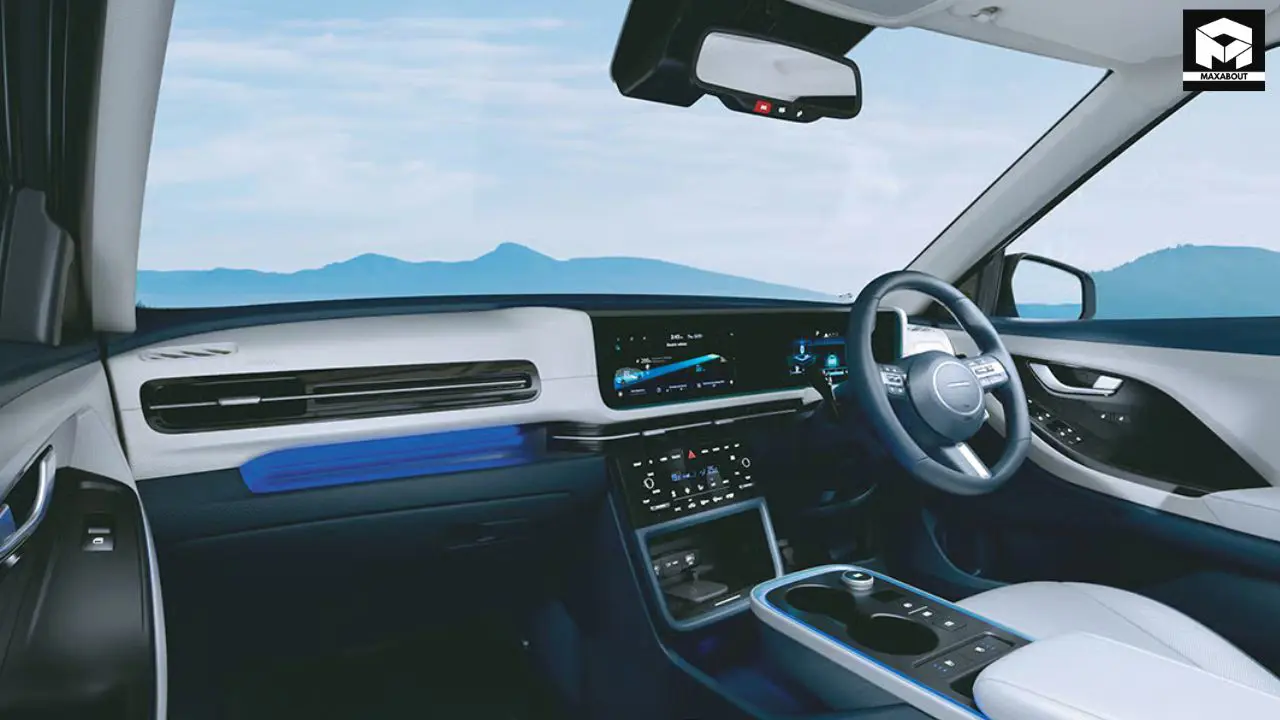Hyundai Creta Electric Price Hike: What's Changed?

The automotive industry has been buzzing with news about Hyundai's recent decision to increase the price of its Creta Electric model. Based on market reports and official communications, the price adjustment reflects ongoing challenges in the EV manufacturing sector, including rising battery material costs and supply chain adjustments that many manufacturers are currently facing.
From what industry sources indicate, the price increase ranges between 2-4%, depending on the variant. This translates to approximately ₹50,000-₹80,000 higher sticker prices for new buyers. While not dramatic compared to some other market adjustments we've seen in the EV space, it's certainly significant enough to impact purchasing decisions for budget-conscious consumers.
Price Comparison: Before and After
To put this into perspective, let's look at how the prices have shifted across the Creta Electric lineup:
- Base Variant: Previous starting price of approximately ₹14.5 lakhs, now starting at around ₹14.99 lakhs (ex-showroom)
- Mid-range Variant: Previously positioned at approximately ₹16.2 lakhs, now priced at about ₹16.75 lakhs
- Premium Variant: The top-end model that was available at roughly ₹18.8 lakhs is now priced at approximately ₹19.5 lakhs
According to dealer networks, these adjustments have been implemented across all regions, though some dealerships may still have limited inventory available at the previous pricing structure.
The Silver Lining: Enhanced Range via OTA Updates

What makes this price increase particularly interesting is that Hyundai isn't just raising prices - they're also adding value. Reports confirm that the company is rolling out over-the-air (OTA) updates to enhance the Creta Electric's range capabilities. This is where the EV market truly demonstrates its technological advantage over traditional vehicles.
Based on technical information released by Hyundai, the OTA updates primarily optimize the battery management system (BMS) and improve the vehicle's regenerative braking algorithms. These software enhancements are expected to deliver approximately 8-10% improvement in overall range efficiency under standard driving conditions.
Technical Improvements Behind the Range Boost
The range improvements come from several technical optimizations:
- Battery Management System refinements: The update includes more sophisticated temperature management and cell balancing algorithms
- Enhanced regenerative braking: Improved energy recapture during deceleration and braking
- Power electronics optimization: More efficient inverter operation and reduced parasitic losses
- Climate control efficiency: Smarter HVAC management that reduces unnecessary battery drain
These improvements demonstrate how software can meaningfully impact EV performance - something that would have required physical components replacement in conventional vehicles. The automotive industry is increasingly moving toward this software-defined vehicle (SDV) approach, and Hyundai seems to be embracing this trend with the Creta Electric.

What This Means for Current Creta Electric Owners
If you already own a Hyundai Creta Electric, the news is particularly positive. According to customer communications from Hyundai, existing owners will receive the range-enhancing updates at no additional cost. The updates are being rolled out in phases, with the company notifying owners when their vehicle is eligible.
From what I understand based on user forums and official communications, the update process is relatively straightforward. The vehicle receives a notification through its infotainment system, and owners can schedule the update to occur overnight while the vehicle is parked and connected to Wi-Fi. Most users report that the update takes between 30-45 minutes to complete.
Practical Impact on Daily Driving
For the average Creta Electric owner, what does an 8-10% range improvement actually mean in practical terms? Based on the vehicle's original specified range of approximately 450-480 km (depending on driving conditions), this could translate to:
- An additional 36-48 km of range per full charge
- Potentially one less charging stop during longer journeys
- Reduced charging frequency for daily commuters
- Better cold-weather performance, where EVs typically see range reduction
These improvements, while not revolutionary, represent meaningful enhancements that address one of the primary concerns for EV owners - range anxiety. The ability to deliver such improvements without requiring a workshop visit also demonstrates the advantages of Hyundai's connected car architecture.
Competitive Analysis: How Does This Position the Creta Electric?
The price increase naturally raises questions about how the Creta Electric now compares to its competitors in the market. Looking at comparable electric SUVs, the adjustment still keeps the Hyundai offering relatively competitive.
The market for compact electric SUVs has been heating up, with several manufacturers launching new models or refreshing existing ones. Based on current pricing and specifications, here's how the updated Creta Electric compares:
Price and Range Comparison with Key Competitors
- Hyundai Creta Electric: ₹14.99-19.5 lakhs, 490-530 km range (after update)
- Tata Nexon EV: ₹14.49-19.29 lakhs, 465 km range
- MG ZS EV: ₹18.98-25.88 lakhs, 461 km range
- Mahindra XUV400: ₹15.49-19.39 lakhs, 456 km range

With the range improvement factored in, the Creta Electric maintains a competitive position despite the price increase. The value proposition shifts slightly but remains strong, especially considering the vehicle's feature set, build quality, and Hyundai's established service network.
The Broader Implications for the EV Market
This development with the Creta Electric highlights several important trends in the electric vehicle market that are worth noting for consumers and industry observers alike.
First, we're seeing a maturation of how manufacturers handle the balance between pricing pressures and value delivery. Rather than simply raising prices, Hyundai has chosen to offset the increase with tangible improvements to the product. This suggests a recognition that EV buyers are particularly value-conscious and calculating in their purchase decisions.
Second, the use of OTA updates to improve core vehicle functionality represents a shift in how cars evolve over their lifecycle. Unlike traditional vehicles that remained largely static after purchase (save for recalls or major service updates), EVs can actually improve over time. This changes the ownership calculus considerably.
Future Implications for EV Ownership
Looking forward, we might expect to see:
- More performance-focused OTA updates: Beyond range, future updates might enhance acceleration, handling, or other driving dynamics
- Subscription-based feature additions: While the current update is free, the industry is moving toward optional paid upgrades for premium features
- Greater emphasis on software architecture: Future EV buyers may consider a vehicle's update capabilities as a primary purchase criterion
- Changing resale value calculations: Vehicles with better update support may hold value better than those with limited software enhancement paths
This evolution points to a future where the relationship between car manufacturers and owners extends well beyond the initial purchase, creating both opportunities and potential concerns for consumers.
Is the Creta Electric Still Worth Considering?
With the price increase and range improvements in mind, potential buyers might be wondering whether the Creta Electric remains a good purchase. Based on comprehensive market analysis and technical specifications, there are several factors worth considering.
The vehicle continues to offer a compelling package in terms of space, features, and now range. The Creta platform has proven popular in its combustion form, and the electric variant maintains many of the characteristics that made the original successful. The enhanced range puts it at the top of its segment, which is a significant advantage for many buyers.
Additionally, Hyundai's commitment to providing meaningful software updates suggests good long-term support for the vehicle. In the rapidly evolving EV market, this kind of future-proofing can be as important as the initial specifications.
Factors to Consider Before Buying
If you're considering the Creta Electric despite the price increase, here are some points to evaluate:
- Charging infrastructure in your area: The improved range is most valuable if you have reliable access to charging
- Your typical driving patterns: The range improvements are particularly beneficial for those with longer daily commutes
- Future update expectations: Consider whether other planned updates might add further value down the road
- Potential incentives: Check whether local or national EV incentives might offset the price increase
For many buyers, the combination of Hyundai's reliability, the improved range, and the overall package may still represent good value despite the higher price point.
Conclusion: Balancing Price and Performance in the EV Era
The Hyundai Creta Electric's price increase coupled with range improvements exemplifies the complex dynamics at play in today's electric vehicle market. Manufacturers must balance economic realities with consumer expectations, all while navigating the rapid technological evolution that defines the EV space.
For consumers, this development offers both challenges and opportunities. The higher price point requires more careful consideration of value, but the improved performance and the promise of future enhancements provide compelling reasons to remain interested in the platform.
What's particularly interesting about this case is how it highlights the changing relationship between car manufacturers and their customers. The ability to meaningfully improve a vehicle after purchase represents a paradigm shift in automotive ownership - one that will likely define the industry for years to come.
As the EV market continues to mature, we can expect to see more of these balanced approaches to pricing and performance. For now, the Creta Electric remains a strong contender in its segment, offering competitive specs and the promise of continued improvement over its lifetime.

